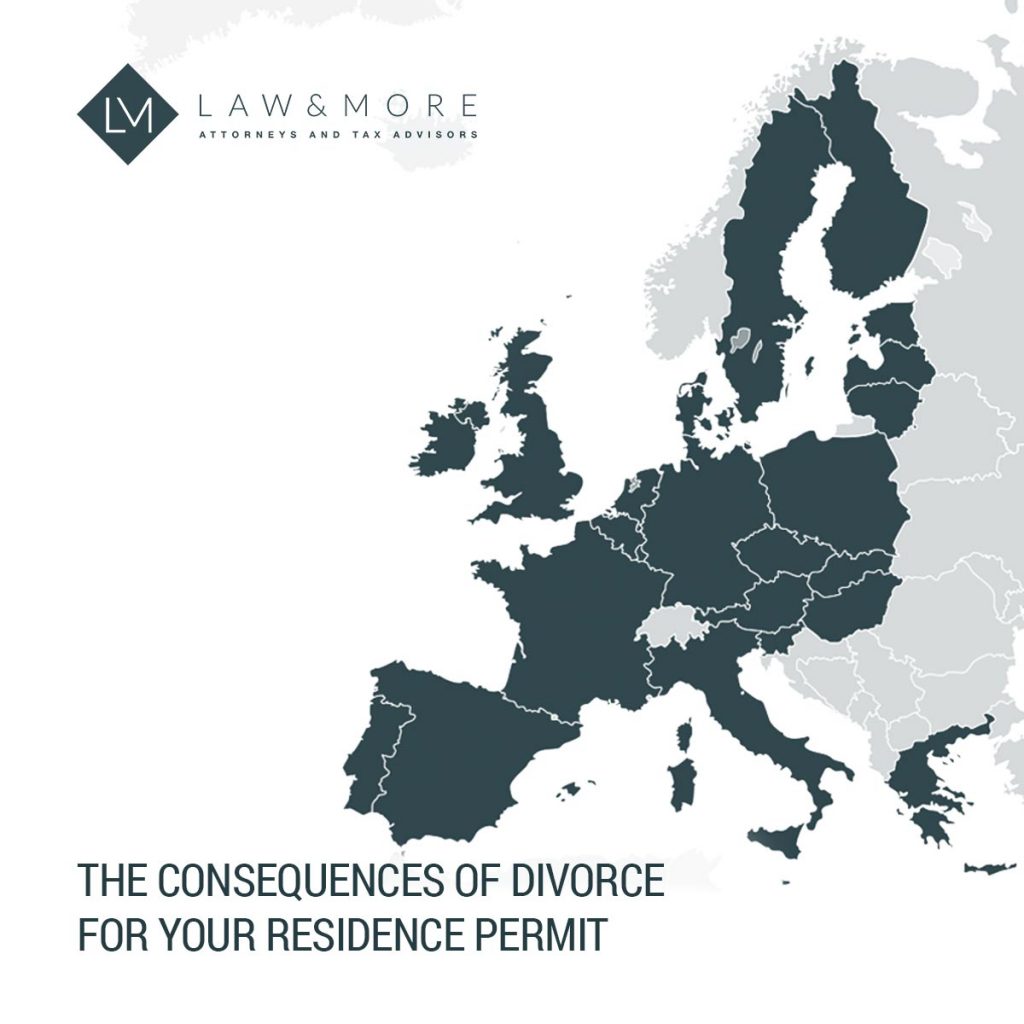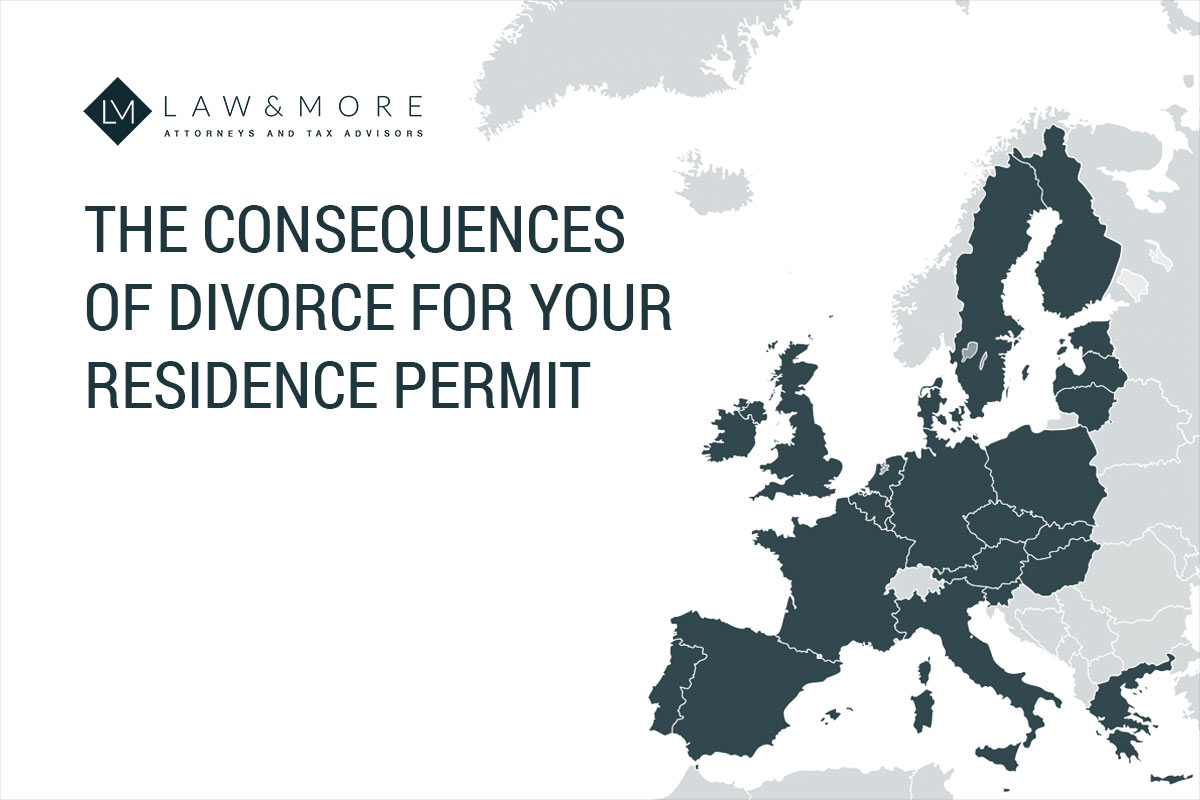Do you have a residence permit in the Netherlands based on a marriage with your partner? Then divorce can have consequences for your residence permit. After all, if you are divorced, you will no longer meet the conditions, your right to the residence permit will lapse and it can therefore be withdrawn by the IND. Whether and on what grounds you can stay in the Netherlands after the divorce, depends on the following situations that need to be distinguished.
You have children
Are you divorced, but you do have minor children? In that case, there is a possibility to keep the residence permit in the Netherlands in the following cases:
You were married to a Dutch citizen and your children are Dutch. In that case, you can keep your residence permit if you demonstrate that there is such a dependency relationship between your Dutch minor child and you that your child would be forced to leave the EU if you were not granted a right of residence. There is usually a dependency relationship when you perform actual care and/or upbringing tasks.
You were married to an EU citizen and your children are EU citizens. You then have the option of retaining your residence permit in the case of unilateral authority or in the case of a visitation arrangement established by the court, the implementation of which must take place in the Netherlands. You must, however, demonstrate that you have sufficient resources to support the family, so that no public funds will be used. Do your children go to school in the Netherlands? Then you may be eligible for an exemption from the above.
You were married to a non-EU citizen and your children are non-EU citizens. In that case it becomes difficult to keep your residence permit. In that case, you can only request that the minor children retain their right of residence under Article 8 of the ECHR. This article regulates the right to protection of family and family life. Various factors are important for the question whether the appeal to this article is actually honoured. It is therefore certainly not an easy way.
You do not have children
If you do not have children and you are going to divorce, your residence permit will expire because you will no longer be together with the person on whom your right of residence depended. Do you want to stay in the Netherlands after your divorce? Then you need a new residence permit. To qualify for a residence permit, you must meet certain conditions. The IND checks whether you meet these conditions. The residence permit for which you are eligible depends on your situation. The following situations can be distinguished:
You are from an EU country. Do you have the nationality of an EU country, EEA country or Switzerland? Then you can live, work or start a business and study in the Netherlands according to European rules. During the period in which you perform (one of) these activities, you can stay in the Netherlands without your partner.
You have a residence permit for more than 5 years. In that case, you can apply for an independent residence permit. You must, however, meet the following conditions: you have had a residence permit for residence with the same partner for at least 5 years, your partner is a Dutch citizen or has a residence permit for a non-temporary purpose of stay and you have an integration diploma or an exemption for this.
You are a citizen of Turkey. More favourable rules apply to Turkish employees and their family members to stay in the Netherlands after a divorce. Due to the agreements between Turkey and the European Union, you can apply for an independent residence permit after only 3 years. If you have been married for three years, you can apply for a residence permit after 1 year to look for work.
Is your residence permit withdrawn as a result of divorce and has your application with regard to another residence permit been rejected? Then there is a return decision and you are given a period within which you must leave the Netherlands. This period is extended if an objection or appeal is lodged against the rejection or withdrawal. The extension lasts until the decision on the objection of the IND or the decision of the judge. If you have exhausted legal proceedings in the Netherlands and you do not leave the Netherlands within the stipulated period, your stay in the Netherlands is illegal. This can have far-reaching consequences for you.
At Law & More we understand that divorce means an emotionally difficult time for you. At the same time, it is wise to think about your residence permit if you want to stay in the Netherlands. A good insight into the situation and the possibilities is important. Law & More can help you to determine your legal position and, if required, take care of the application for the retention or new residence permit. Do you have any other questions, or do you recognize yourself in one of the above situations? Please contact the lawyers of Law & More.

